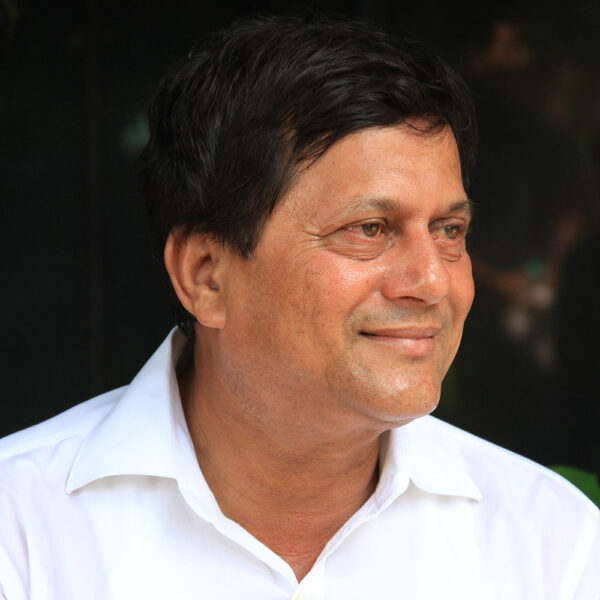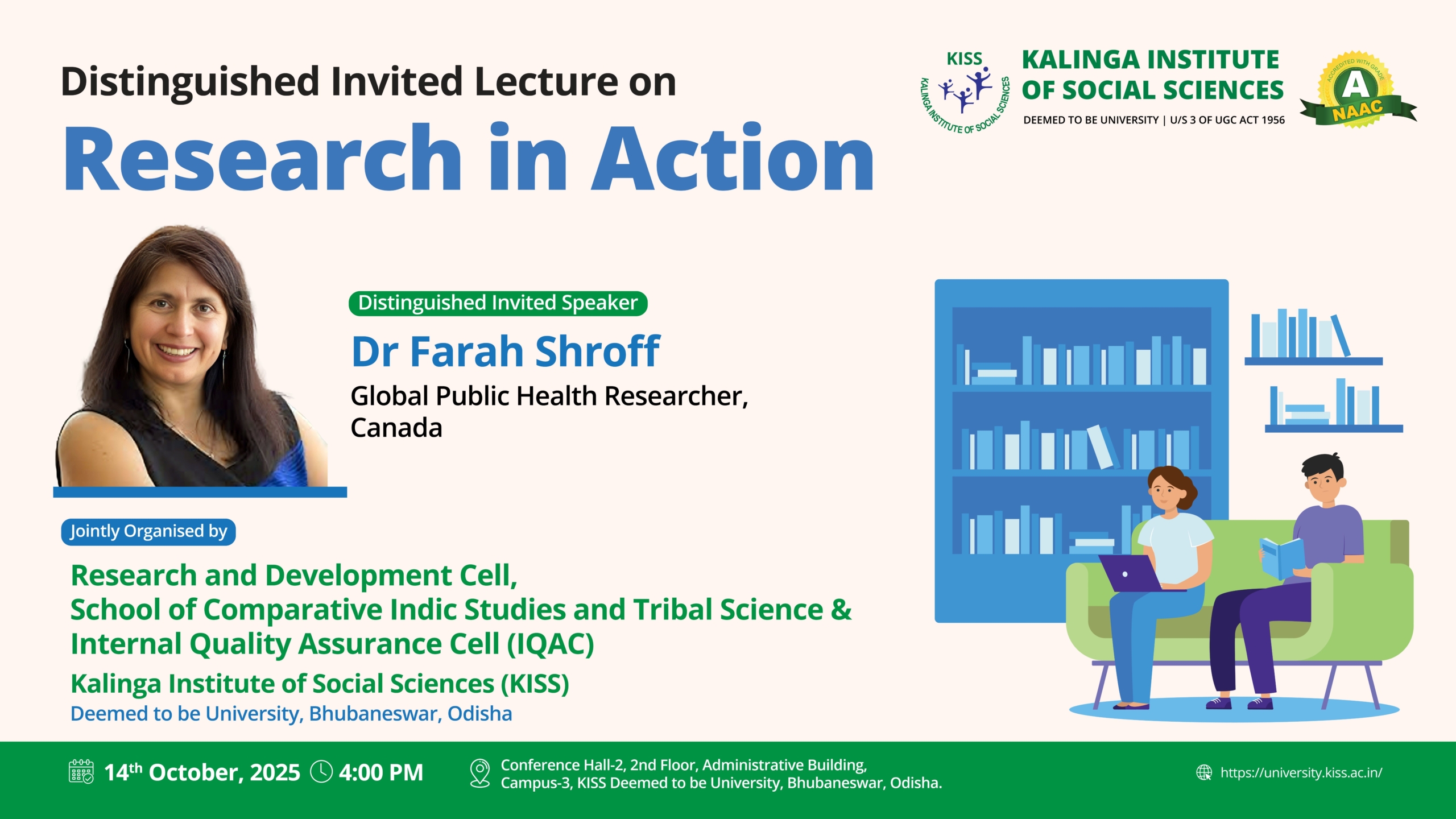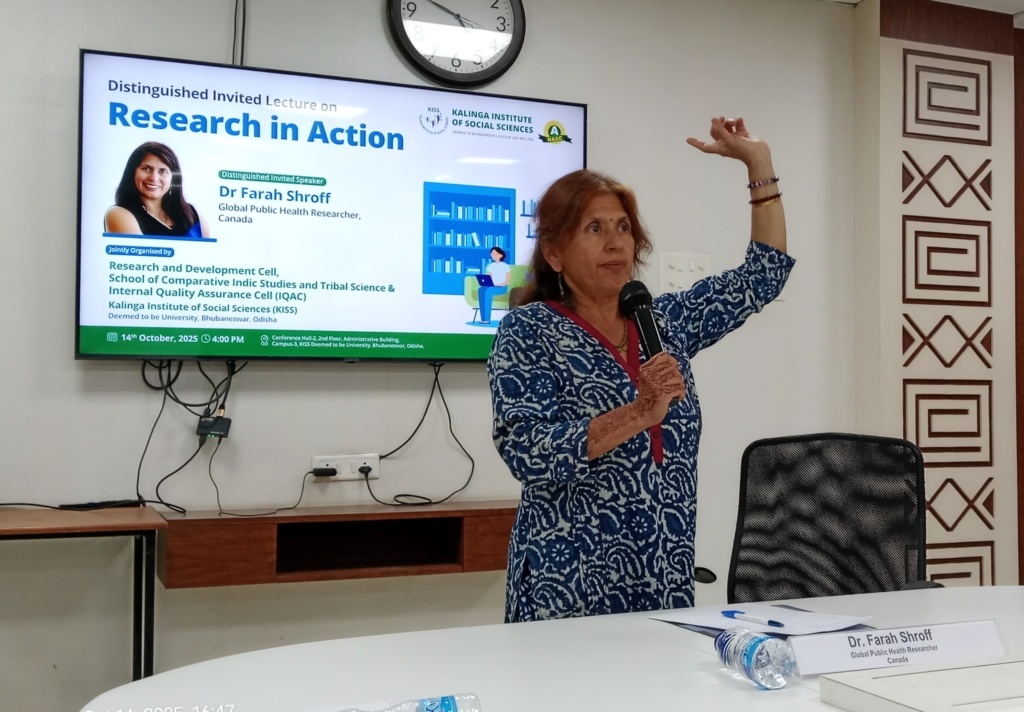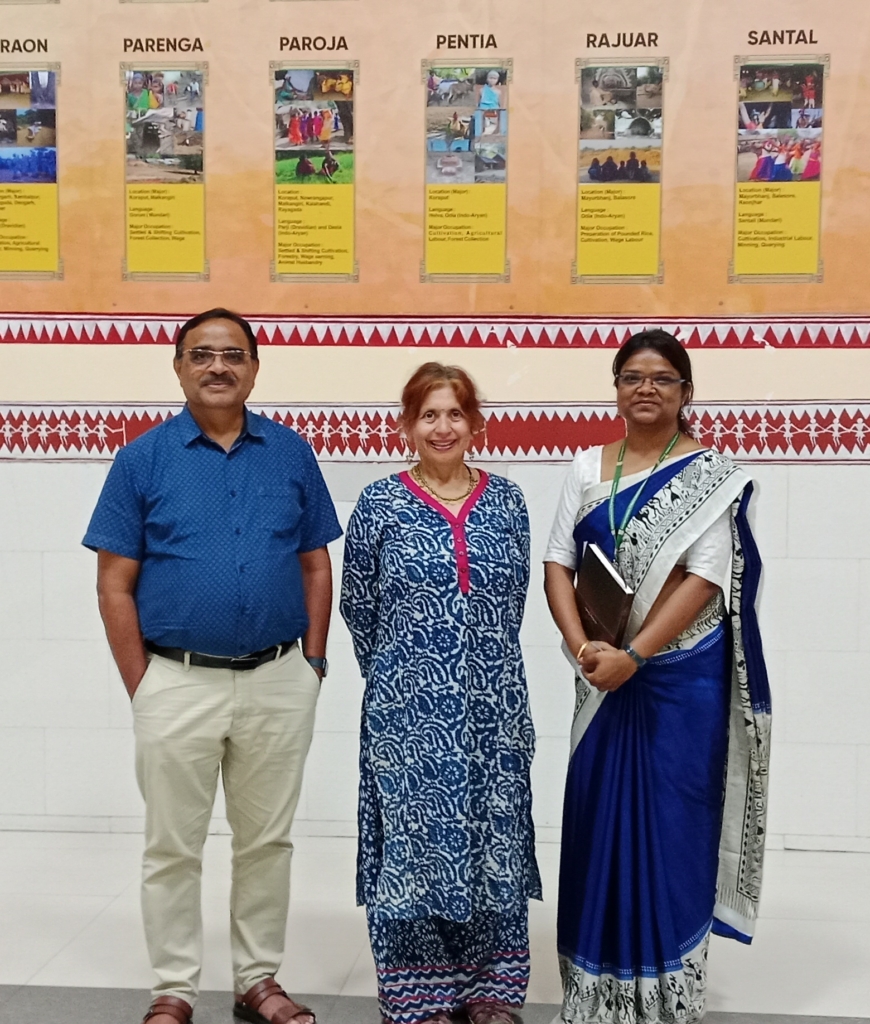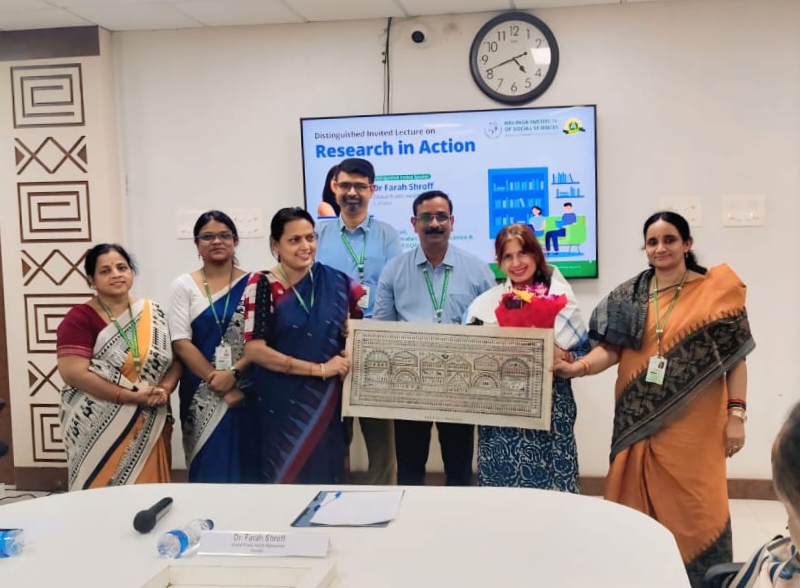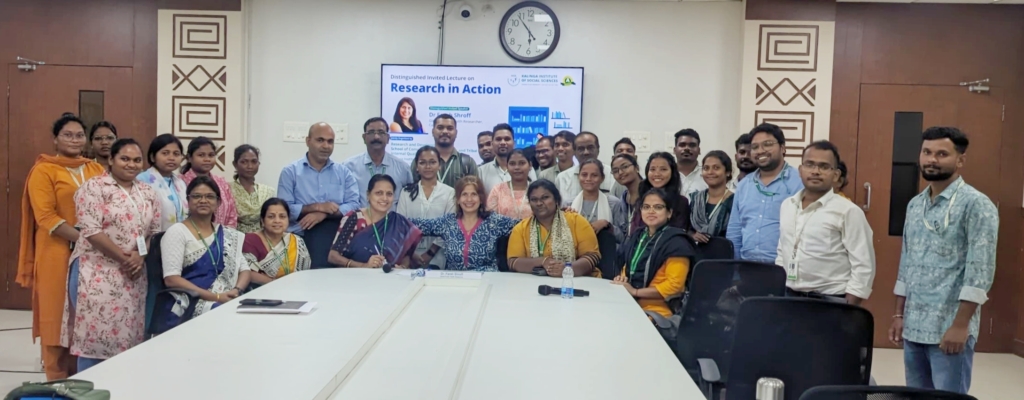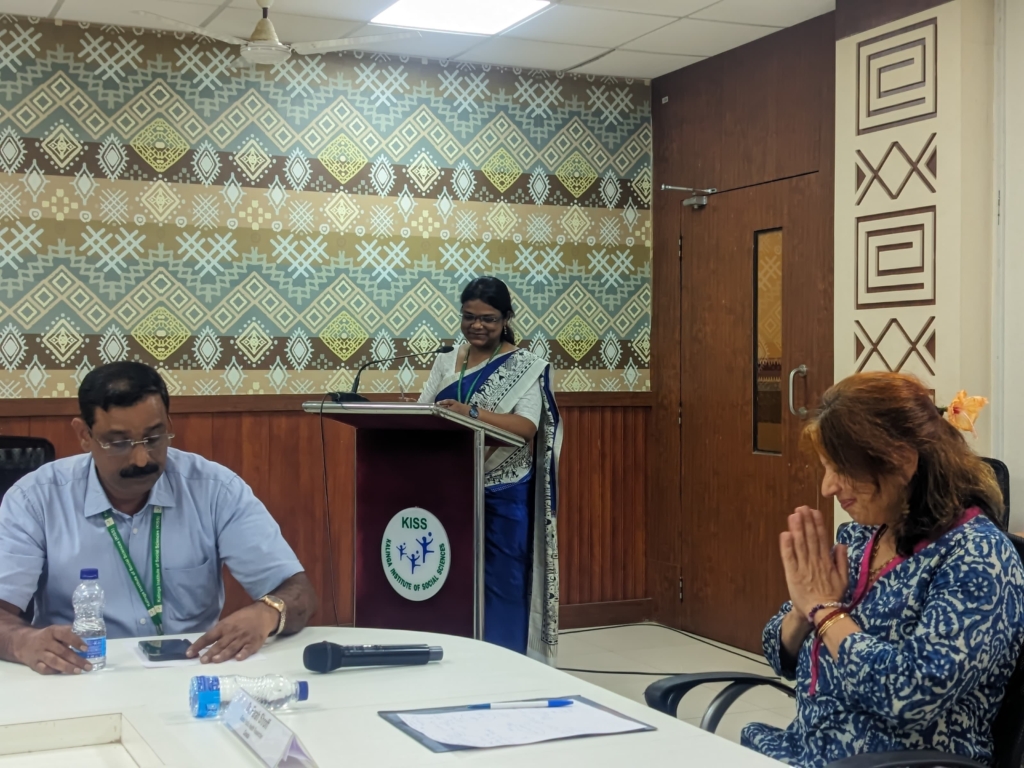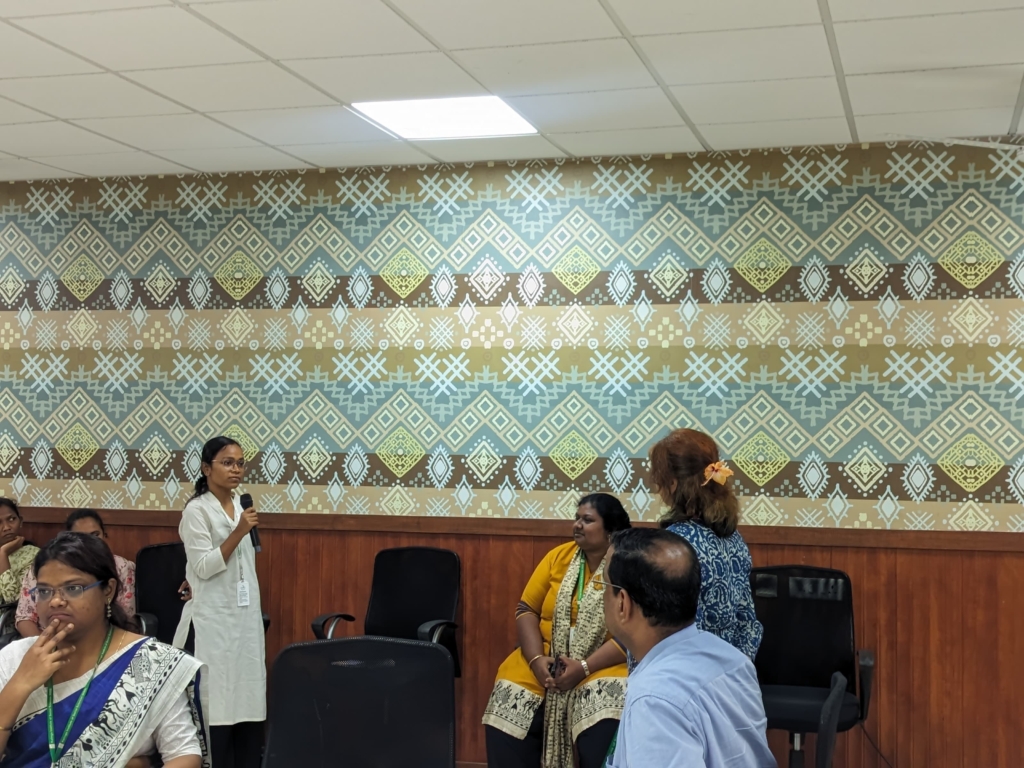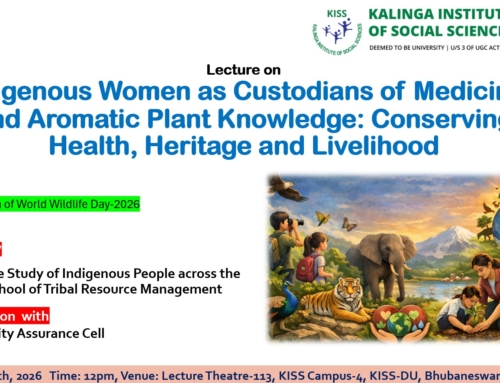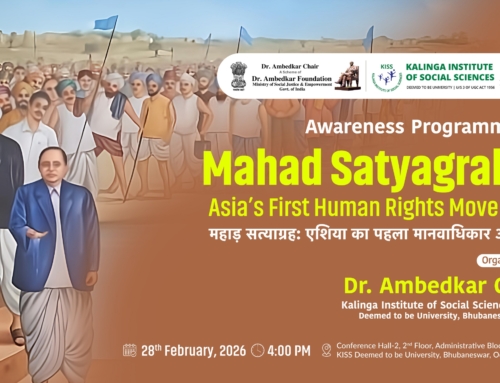The Research and Development Cell (R&D Cell) in collaboration with the School of Comparative Indic Studies and Tribal Science (SCISTS) and Internal Quality Assurance Cell (IQAC), KISS-DU jointly organized an international Distinguished Invited Lecture on “Research in Action” on 14th October 2025. Dr. Farah Shroff, a renowned global public health researcher from Canada was invited as the resource person.
The welcome address was delivered by Dr. Chittaranjan Bhoi, Associate Professor and Dean, School of Comparative Tribal Languages and Literatures (SCTLL), who warmly greeted the gathering and introduced the objectives of the session. Dr. Farah Shroff was felicitated in recognition of her contributions to global public health and community-based research. She was introduced to the audience by Dr. Arpana Oraon, Director of the R&D Cell, who highlighted Dr. Shroff’s academic background and impactful work in the field of research and public health advocacy.
In her keynote address, Dr. Shroff emphasized the importance of integrating scientific inquiry with community engagement. She advocated for research that transcends academic boundaries and leads to real-world applications. Drawing from her extensive experience, she illustrated how research can be a catalyst for change, especially in marginalized communities. Her talk inspired faculty members, research scholars, and students to rethink conventional approaches to research and focus on action-oriented outcomes. The session was highly interactive, with participants engaging in a meaningful dialogue with Dr. Shroff. She addressed a range of questions, offering insightful suggestions and guidance to scholars on how to align their research with societal needs and policy frameworks.
The event concluded with a vote of thanks delivered by Dr. Rashmi Mohapatra, Associate Professor and Head of the Department of Botany, who expressed gratitude to Dr. Shroff for her thought-provoking session and to all attendees for their enthusiastic participation. This interactive talk successfully fostered a research-centric dialogue and left a lasting impression on all present. It served as a valuable platform for academic exchange and reaffirmed the University’s commitment to fostering research that is inclusive, innovative, and impactful.

